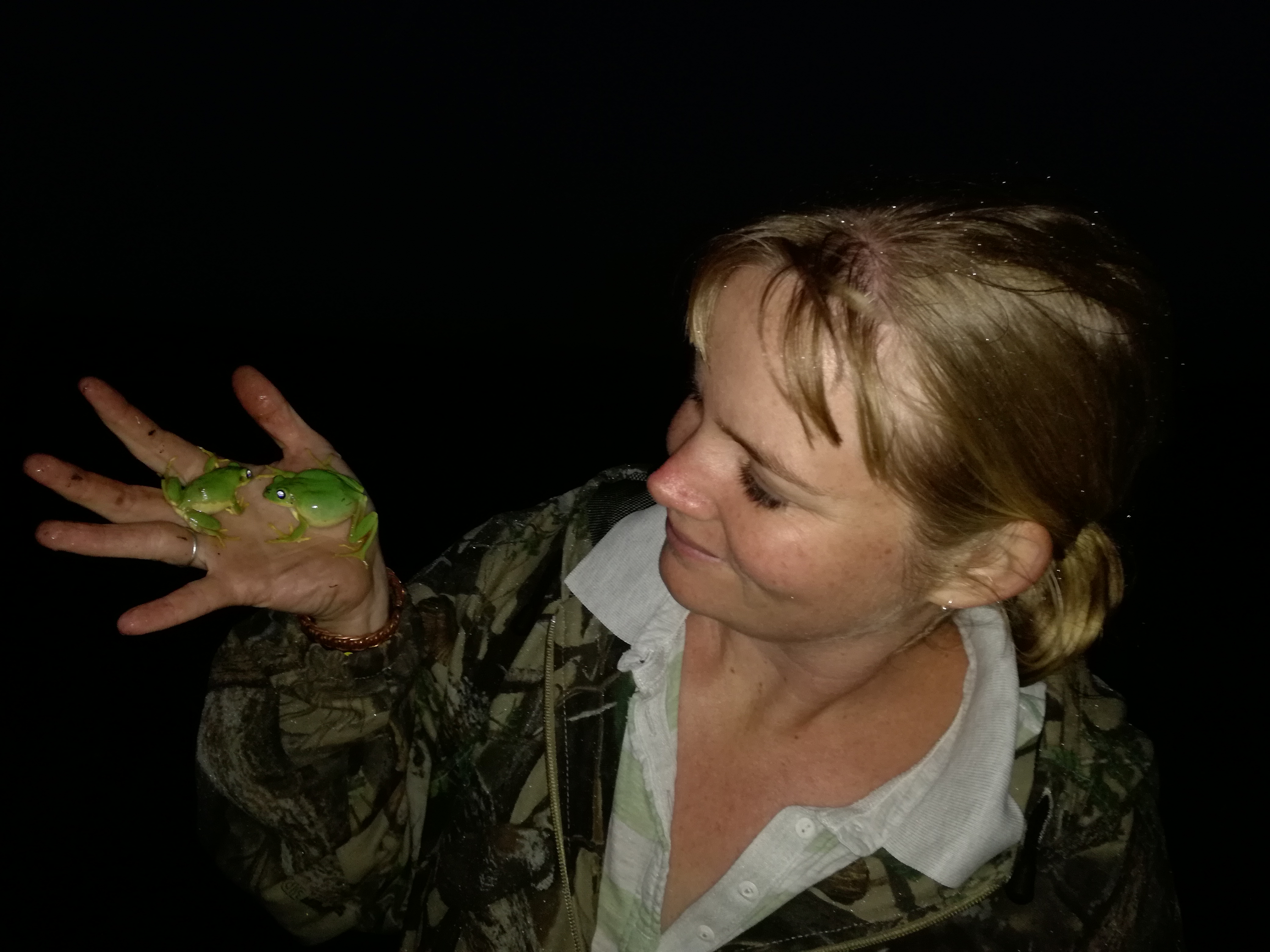Maybe it’s just me but papers and articles I read always seem to shine with success stories about how well a project is going/has gone etc. Once again, maybe it’s just me, but I’m sure that is not always the case. Anyway, I decided to tell a different story here. Perhaps it’s because I’m only half-way with my project, but in my experience nothing has gone to plan – our theories have been blown out the water and, at this stage, I have more questions than when I started! But maybe this is an integral half-way mark of any project and is why articles are usually published at the end of projects!
One thing is for sure, just because things aren’t going according to plan, it doesn’t mean you can’t learn and gather data. That said, if someone says to me one more time that negative results are still results, I may just spit in their eye!
If you’d asked me a year ago I’d have said that the subject of my work is a fairly typical South African frog, and I’d have assumed it would behave like a fairly typical South African frog; but I’d have been wrong. I grew up and have spent my life surrounded by wildlife, including tree frogs, and of all people I would have thought that I had a fair understanding of how unpredictable nature is. My professor has also worked on frogs all over the world for many years and is the best in the game in my humble opinion, and yet he too has been flummoxed by aspects of this project. I think the bottom line is, one should never surmise too much or plan too rigidly at the beginning of a project – by all means plan, but don’t hold onto those plans too tightly! Prof keeps reminding me that a Masters is a “skills degree”, and I think the main skill I have learned so far is to roll with the punches and to adapt… or die!
Do I know more about this species than I did 18 months ago… YES! So much more and it’s also revealed to me how much more there is to learn. The frogs are enchanting and I love the fact that we can never really know a species – there will always be more to learn. While it’s really annoying to pit your wits against a frog and lose, I can’t help but feel incredibly privileged to be doing this work; to be the lucky one who gets to be outsmarted by a 5 – 10cm amphibian with exceptionally long toes.
To those reading this, who are also in the doldrums, where things are honestly going to pot and NOTHING seems to be working according to plan, please choose to adapt instead of dying! I’m confident that even we will be able to write articles one day that smooth out the wrinkles and answer, at least some, of the riddles we set out so confidently to solve!
By Kirsty Kyle, African Amphibian Conservation and Research Group – North West University, South Africa

